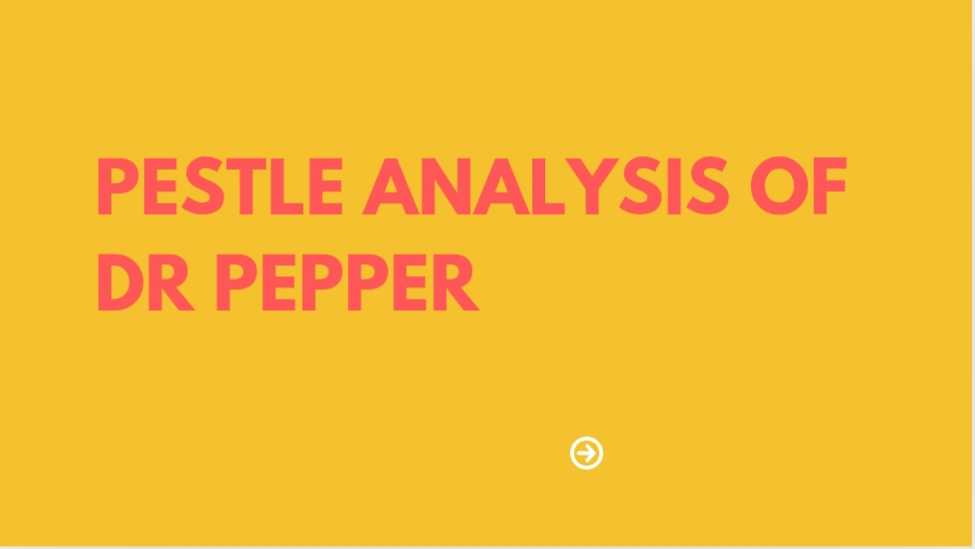In the rapidly evolving landscape of the food industry, Beyond Meat has emerged as a prominent player in the plant-based protein market, challenging traditional meat alternatives with its innovative products. A PESTEL analysis—examining Political, Economic, Social, Technological, Environmental, and Legal factors—provides a comprehensive framework to understand the external forces shaping Beyond Meat’s strategic landscape. By exploring these dimensions, we can gain insights into how Beyond Meat navigates regulatory challenges, adapts to economic shifts, leverages technological advancements, and aligns with social and environmental expectations. This analysis reveals the multifaceted influences that impact Beyond Meat’s operations and growth prospects in a dynamic and increasingly competitive market.
Table of Contents
TogglePolitical Factors of Beyond Meat
Political factors play a crucial role in shaping the strategic environment for Beyond Meat, influencing its operations and growth trajectory. Key political considerations include:
- Regulatory Policies: Government regulations concerning food safety, labeling, and product standards directly impact Beyond Meat’s ability to market and distribute its plant-based products. Policies that support or hinder the development and commercialization of alternative proteins can significantly affect the company’s market access and operational costs.
- Trade Agreements and Tariffs: International trade policies and tariffs can influence Beyond Meat’s supply chain and global expansion strategy. Favorable trade agreements can facilitate market entry and reduce costs, while trade barriers or tariffs on imported ingredients or finished products could increase expenses and affect pricing strategies.
- Subsidies and Incentives: Government subsidies for agriculture and incentives for sustainable practices can affect Beyond Meat’s cost structure and competitiveness. Support for plant-based agriculture or renewable energy could lower production costs and enhance profitability, whereas subsidies for traditional animal farming might create competitive disadvantages.
- Political Stability and Policy Changes: Political stability in key markets is vital for business continuity. Political upheaval or shifts in policy direction, such as changes in environmental regulations or food policy, can create uncertainties and impact Beyond Meat’s operations and investment plans.
- Advocacy and Public Policy: Advocacy by environmental and health organizations can influence public policy and consumer preferences. Support from influential political figures or lobbying efforts can result in favorable policies for plant-based products, while opposition could lead to regulatory challenges.
Understanding these political factors helps Beyond Meat navigate potential risks and leverage opportunities in its pursuit of expanding its presence in the global food market.
Economic Factors of Beyond Meat
Economic factors are pivotal in shaping Beyond Meat’s business environment and strategic decisions. Key economic considerations include:
- Market Demand and Consumer Spending: The demand for plant-based proteins is influenced by consumer spending power and changing dietary preferences. Economic conditions that affect disposable income, such as recessions or economic booms, can impact the affordability and attractiveness of Beyond Meat’s products to different consumer segments.
- Cost of Raw Materials: Fluctuations in the prices of key raw materials, including plant-based ingredients and packaging, directly affect Beyond Meat’s production costs. Economic factors such as supply chain disruptions, commodity price changes, and inflation can influence these costs, impacting pricing strategies and profit margins.
- Economic Growth and Global Expansion: Economic growth rates in different regions can determine market potential for Beyond Meat’s products. Growing economies with increasing middle-class populations may offer lucrative opportunities for expansion, while economic downturns could pose challenges to market entry and sales.
- Exchange Rates: For a company with a global presence, exchange rate fluctuations can impact revenue and profitability. Currency volatility can affect the cost of imports and exports, influencing overall financial performance and pricing strategies in international markets.
- Investment and Financing Conditions: Access to capital and favorable financing conditions are crucial for supporting Beyond Meat’s research and development, expansion, and operational needs. Economic factors such as interest rates, availability of venture capital, and investor sentiment can influence the company’s ability to secure funding and invest in growth initiatives.
- Competitive Pricing and Market Position: Economic pressures can impact competitive pricing strategies. Beyond Meat must navigate price competition from traditional meat products and other plant-based competitors, balancing affordability with maintaining product quality and innovation.
By analyzing these economic factors, Beyond Meat can better understand market dynamics, manage financial risks, and identify opportunities for growth and investment in the evolving food industry landscape.
Social Factors of Beyond Meat
Social factors significantly influence Beyond Meat’s market positioning and consumer acceptance. Key social considerations include:
- Changing Dietary Preferences: There is a growing trend towards plant-based diets driven by increasing awareness of health, ethical, and environmental issues. As more consumers seek to reduce their meat consumption or adopt vegetarian and vegan lifestyles, Beyond Meat can capitalize on this shift by offering products that align with these evolving preferences.
- Health and Wellness Trends: Rising awareness of health and wellness has led to a greater emphasis on healthier eating habits. Beyond Meat’s plant-based products are often perceived as healthier alternatives to traditional meat, catering to health-conscious consumers who are concerned about issues like cholesterol, heart disease, and obesity.
- Environmental Concerns: Social consciousness regarding environmental sustainability is on the rise. Concerns about climate change, deforestation, and resource depletion are driving consumers towards more sustainable food choices. Beyond Meat’s commitment to reducing the environmental impact of meat production aligns with these values, potentially enhancing its appeal to eco-conscious consumers.
- Ethical and Animal Welfare Considerations: Increasing concern about animal welfare and the ethical treatment of animals is pushing consumers towards plant-based options. Beyond Meat’s focus on providing humane alternatives to animal-derived products resonates with consumers who are motivated by animal rights and ethical considerations.
- Cultural and Regional Preferences: Social and cultural factors influence food choices, with varying attitudes towards plant-based diets across different regions. Beyond Meat needs to adapt its marketing strategies to address cultural preferences and dietary habits in diverse markets to effectively penetrate and grow in those regions.
- Consumer Education and Awareness: The level of consumer knowledge about plant-based diets and their benefits can affect market acceptance. Beyond Meat’s educational efforts and marketing campaigns play a crucial role in informing consumers about the advantages of plant-based proteins and overcoming potential skepticism.
By understanding these social factors, Beyond Meat can tailor its product offerings, marketing strategies, and corporate social responsibility initiatives to better align with consumer values and preferences, thereby enhancing its market position and driving growth.
Technology Factors of Beyond Meat
Technological factors are central to Beyond Meat’s ability to innovate, improve product quality, and maintain competitive advantage. Key technological considerations include:
- Research and Development (R&D): Technological advancements in food science and biotechnology are crucial for Beyond Meat’s product innovation. Investments in R&D enable the company to develop new plant-based formulations, improve texture and taste, and enhance nutritional profiles, keeping pace with evolving consumer preferences and industry trends.
- Food Processing Technology: Advances in food processing technologies, such as extrusion and fermentation, play a significant role in creating plant-based meat alternatives. Beyond Meat leverages these technologies to replicate the taste, texture, and appearance of traditional meat, which is essential for attracting mainstream consumers.
- Supply Chain Efficiency: Technology enhances supply chain management through improved logistics, inventory control, and data analytics. Effective use of technology in supply chain operations helps Beyond Meat optimize production processes, reduce costs, and ensure a steady supply of raw materials.
- Sustainability Innovations: Technological advancements in sustainable practices, such as energy-efficient production methods and waste reduction technologies, align with Beyond Meat’s environmental goals. Innovations that reduce the carbon footprint and resource usage of manufacturing processes support the company’s commitment to sustainability.
- Consumer Engagement and Digital Marketing: Digital technologies and social media platforms are crucial for engaging with consumers and building brand loyalty. Beyond Meat uses digital marketing strategies, including targeted advertising and social media campaigns, to reach and educate consumers about the benefits of plant-based diets.
- Quality Control and Food Safety: Advanced technology in quality control and food safety ensures that Beyond Meat’s products meet stringent health and safety standards. Innovations in monitoring systems and testing methodologies help maintain product consistency and address any potential issues before they reach the market.
- Automation and Production Scaling: Automation technologies enable Beyond Meat to scale production efficiently and meet increasing demand. By integrating robotics and automated systems into manufacturing processes, the company can enhance productivity and reduce labor costs.
By capitalizing on these technological factors, Beyond Meat can drive innovation, optimize operations, and maintain a competitive edge in the growing plant-based food sector.
Legal Factors of Beyond Meat
Legal factors are crucial in shaping Beyond Meat’s operations and strategic decisions. Key legal considerations include:
- Food Safety and Regulations: Compliance with food safety regulations is essential for Beyond Meat to ensure its products meet the required health standards. Regulations from agencies such as the U.S. Food and Drug Administration (FDA) and the European Food Safety Authority (EFSA) govern ingredient approval, labeling requirements, and product safety. Adhering to these regulations is vital to avoid legal issues and maintain consumer trust.
- Labeling and Advertising Laws: Accurate labeling and advertising are critical for avoiding misleading claims and ensuring transparency. Beyond Meat must navigate laws and regulations related to product claims, nutritional information, and marketing practices. Missteps in these areas could lead to legal challenges or penalties.
- Intellectual Property: Protecting intellectual property (IP) through patents, trademarks, and trade secrets is important for safeguarding Beyond Meat’s innovations and brand identity. Legal disputes over IP can impact the company’s competitive advantage and market position.
- Employment and Labor Laws: Compliance with employment and labor laws is essential for managing a workforce effectively. This includes adhering to regulations on wages, working conditions, and employee rights. Legal issues related to employment practices can affect company operations and reputation.
- Environmental Regulations: Beyond Meat must comply with environmental regulations concerning waste management, emissions, and sustainability practices. Regulations aimed at reducing environmental impact can influence production processes and require investment in eco-friendly technologies.
- Trade and Export Laws: International expansion involves navigating trade laws and export regulations in various countries. Compliance with these legal frameworks is necessary to ensure smooth market entry and avoid trade disputes or barriers.
- Consumer Protection Laws: Adhering to consumer protection laws ensures that Beyond Meat’s products meet the expectations of safety, quality, and reliability. These laws help protect consumers from fraudulent or harmful products and enhance brand credibility.
- Corporate Governance: Legal requirements related to corporate governance, including financial reporting and disclosure, are crucial for maintaining transparency and accountability. Compliance with these regulations helps build investor confidence and supports sustainable business practices.
Understanding and managing these legal factors are essential for Beyond Meat to operate effectively, mitigate risks, and leverage opportunities within the regulatory landscape.
Environmental Factors of Beyond Meat
Environmental factors are crucial for Beyond Meat, influencing both its operational practices and market positioning. Key environmental considerations include:
- Sustainability Practices: Beyond Meat’s commitment to sustainability is a core aspect of its brand. The company focuses on reducing the environmental impact of meat production by offering plant-based alternatives that require fewer natural resources and produce less greenhouse gas emissions compared to traditional animal farming. Adopting sustainable practices helps align with global environmental goals and attracts eco-conscious consumers.
- Resource Efficiency: Efficient use of resources, such as water, energy, and raw materials, is vital for minimizing the environmental footprint of production. Beyond Meat invests in technologies and processes that optimize resource utilization and reduce waste, contributing to overall environmental sustainability.
- Climate Change: The impact of climate change on agricultural practices and supply chains is an important consideration. Beyond Meat’s plant-based products are designed to be less carbon-intensive than conventional meat, which helps address climate change challenges and supports the company’s environmental sustainability objectives.
- Waste Management: Effective waste management practices are essential for reducing the environmental impact of production activities. Beyond Meat focuses on minimizing waste through recycling, reusing by-products, and implementing waste reduction strategies in its manufacturing processes.
- Packaging and Plastics: The environmental impact of packaging is a growing concern. Beyond Meat seeks to use sustainable packaging materials and reduce plastic waste, which aligns with broader environmental initiatives to reduce plastic pollution and promote circular economy practices.
- Regulatory Compliance: Compliance with environmental regulations and standards is necessary to avoid legal penalties and ensure sustainable operations. Beyond Meat must adhere to local and international regulations regarding emissions, waste management, and resource use.
- Consumer Expectations and Market Trends: Growing consumer awareness of environmental issues influences market demand. Consumers are increasingly favoring brands that demonstrate environmental responsibility and sustainability. Beyond Meat’s focus on reducing its ecological footprint helps meet these consumer expectations and strengthen its market position.
- Supply Chain Environmental Impact: Beyond Meat evaluates the environmental impact of its supply chain, including the sustainability practices of its suppliers. Ensuring that suppliers adhere to environmental standards contributes to the overall sustainability of the company’s products.
By addressing these environmental factors, Beyond Meat can enhance its sustainability efforts, align with regulatory requirements, and meet the growing consumer demand for environmentally friendly products.







